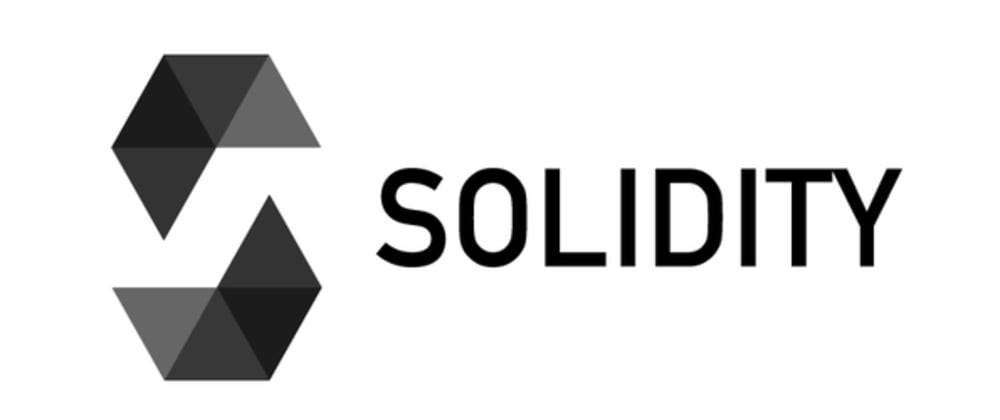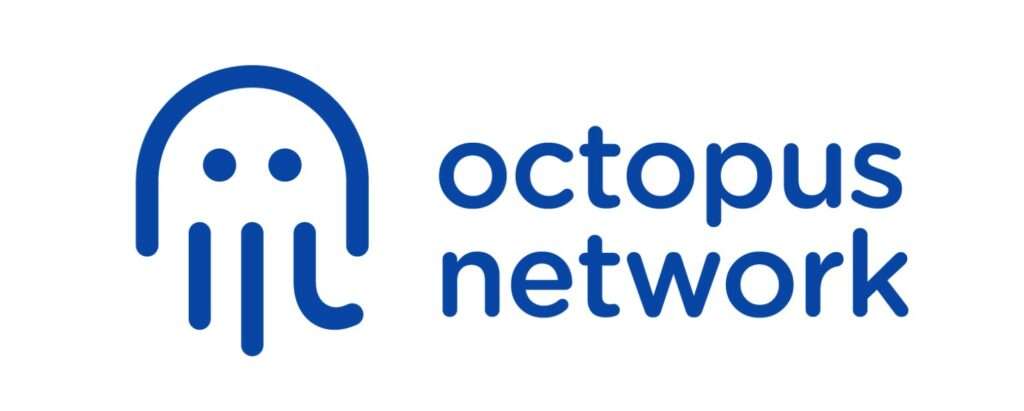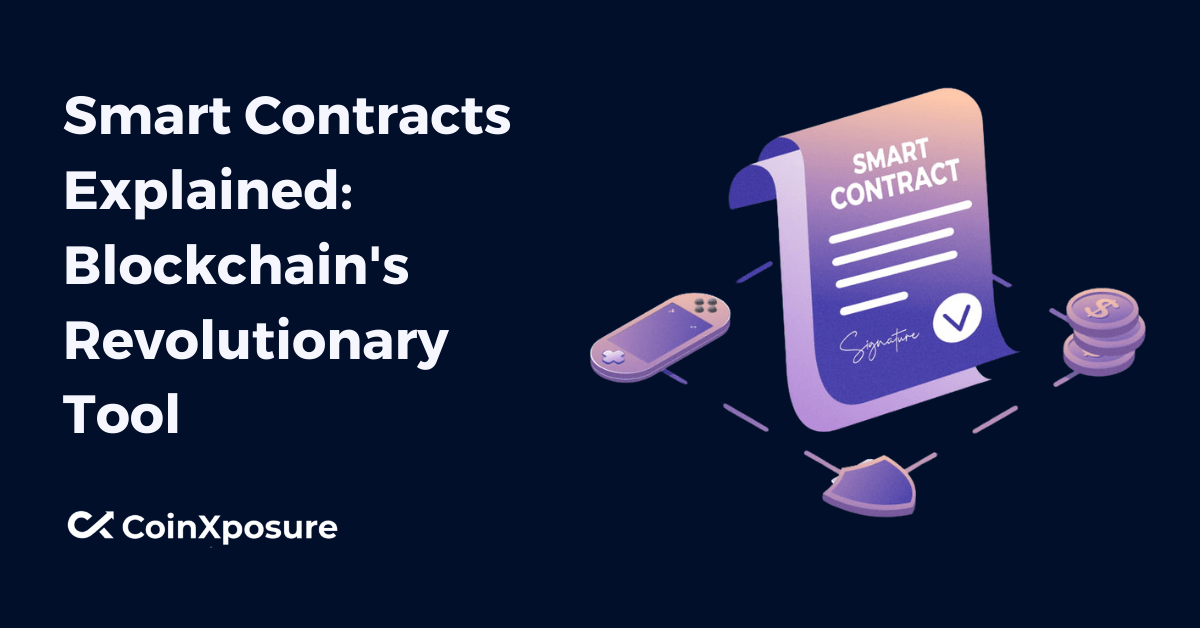A Smart contract uses blockchain technology to ease the exchange of money, property, information, etc. This article discusses this revolutionary tool in blockchain technology called smart contracts.
Smart contracts have emerged as a game-changing tool in the rapidly evolving realm of blockchain technology.
They go beyond cryptocurrencies such as Bitcoin and are self-executing programs that automate and enforce contract requirements.
Let’s get down to business and see what a smart contract is.
What are Smart Contracts?
A Smart contract is a digital agreement signed and kept on a blockchain network that executes automatically once the contract’s terms and conditions (T&C) are met; the T&C are defined in blockchain-specific programming languages such as Solidity.
A Smart contract can also be viewed as a blockchain program that allow all parties involved in a transaction to complete their respective tasks.
Smart contract-based apps are sometimes called “decentralized applications” or “dapps.”
While blockchain is widely regarded as the underlying technology driving Bitcoin, it has developed into a formidable force.
A firm needing raw materials can use smart contracts to establish payments and schedule shipments.
Then, depending on the agreement between the two organizations, funds can be automatically sent to the seller upon shipping or delivery.
Before moving further, let’s see how smart contracts came to be.
History of Smart Contracts
Nick Szabo, a computer scientist born in the United States, was the first to suggest smart contracts in 1994. He built a virtual currency called “Bit Gold” in 1998, a decade before Bitcoin.
Szabo defined a smart contract as a digital transaction mechanism that carries out a contract’s terms.
Many of Szabo’s forecasts in his paper have become part of our daily lives in ways that predate blockchain technology.
However, this notion could not be executed since the required technology, particularly the distributed ledger, did not exist then.
Satoshi Nakamoto published a whitepaper in 2008 that described the groundbreaking blockchain technology. It prevented transactions from being defined in subsequent blocks.
However, the emergence of cutting-edge technologies catalyzed the growth of smart contracts. Five years later, the Ethereum blockchain technology made the practical implementation of a smart contract possible.
Ethereum is still one of the most widely used platforms for smart contract development.
How Smart Contracts Work
Like any other contract, a smart contract is a legally enforceable agreement between two parties.
It employs programming to take advantage of the benefits of blockchain technology, resulting in increased efficacy, openness, and confidentiality.
A Smart contract uses simple “if/when…then…” expressions written in blockchain code to govern execution.
The procedures necessary for smart contracts to function correctly are;
- Agreement
- Contract creation
- Deployment
- Conditions for monitoring
- Execution
- Recording
Agreement
The parties that wish to conduct business or exchange products or services must agree on the terms and circumstances of the agreement.
In addition, they must establish how a smart contract will function, including the criteria that must be met for the agreement to be performed.
Contract Creation
Participants in a transaction can develop a smart contract in various methods, including building one themselves or working with a smart contract service.
The contract provisions have been coded in a computer language. During this step, it is vital to check the contract’s security thoroughly.
Deployment
Once the contract is finalized, it must be published on the blockchain. The smart contract is published to the blockchain like conventional cryptocurrency transactions, with the code entered into the exchange’s data field.
Once verified, the transaction is considered active on the blockchain and cannot be reversed or altered.
Conditions for Monitoring
A smart contract monitors the blockchain or another reliable source for predefined circumstances or prompts. These triggers can be anything that can be digitally validated, such as a date, payment, and so on.
Execution
When the trigger criteria are met, the smart contract activates using the “if/when…then…” phrase.
This may involve only one or several acts, such as transferring payments to a vendor or registering the buyer’s possession of an object.
Recording
Contract execution outcomes are quickly reported to the blockchain.
The blockchain technology checks the acts conducted, documents their completion as an exchange, and records the agreement reached on the blockchain. This document is available at any time.
Let us also look at the types of smart contracts available.
Types of Smart Contracts
There are three major types of smart contracts and they are;
- Decentralized autonomous organizations (DAOs)
- Smart legal contracts
- Application logic contracts
Decentralized Autonomous Organizations (DAOs)
DAOs are democratic groups regulated by smart contracts that grant them voting power. A DAO is a blockchain-governed organization with a common goal that is jointly owned.
No executive or president exists. Instead, blockchain-based principles in the contract’s code govern how the organization operates and how assets are distributed.
VitaDAO is an example of a smart contract in which technology powers a community dedicated to scientific research.
Smart Legal Contracts
Smart contracts are protected by law. They follow the framework of legal agreements: “If this happens, then this will happen.”
Judicial or legal smart contracts provide greater transparency between contracting organizations than traditional documents because they are stored on the blockchain and cannot be changed.
Contracts are executed using digital signatures by all parties involved. Smart legal contracts can be completed autonomously if certain conditions are met, such as making a payment when a deadline is reached.
In the event of non-compliance, stakeholders may suffer serious legal consequences.
Application Logic Contracts
ALCs, or application logic contracts, comprise application-based code typically in sync with other blockchain contracts.
It allows for interactions between devices, such as the Internet of Things (IoT) or blockchain integration.
Unlike different types of smart contracts, these are signed between machines and other contracts rather than between humans or organizations.
We will now see some benefits of smart contracts in blockchain technology.
Benefits of Smart Contracts
Some benefits of smart contracts include;
- Efficiency and Automation
- Transparency and Security
- Cost savings
- Trust and Decentralization
Efficiency and Automation
One of the most notable benefits of smart contracts is the efficiency they bring to numerous procedures.
Smart contracts minimize the need for intermediaries and manual intervention by automatically executing predefined criteria.
This speeds up transaction completion and decreases the possibility of errors in traditional, manual blockchain development procedures.
The automation of smart contracts improves overall operational efficiency across sectors.
Transparency and Security
Smart contracts add additional transparency and security to transactions.
When conducted on a blockchain, each action and agreement is recorded in an immutable and transparent ledger available to all parties involved.
This transparency decreases the danger of fraud and guarantees that all parties clearly understand the contract’s execution.
The use of cryptographic algorithms in blockchain provides an additional degree of security, making it extremely difficult for hostile actors to tamper with data.
Cost Savings
Smart contracts greatly reduce costs. Businesses can save costs significantly by eliminating intermediaries, minimizing the need for lengthy paperwork, and streamlining operations.
Automation of tasks also reduces the likelihood of errors that could result in financial losses.
Smart contracts are an appealing alternative for firms looking to optimize their operations and improve their bottom line due to their low-cost structure.
Trust and Decentralization
Trust is an essential component of every transaction or agreement. Smart contracts conducted on decentralized blockchain networks naturally promote trust.
The decentralized nature means no single party has complete control over the process, and validation is distributed around the network.
This decentralization eliminates the need for blind reliance on a central authority, lowering the likelihood of manipulation or fraud.
Trust and decentralization work together to provide a more trustworthy and secure foundation for various mobile applications, including financial transactions and supply chain management.
Challenges of Smart Contracts
Despite their unique advantages, smart contracts face some significant drawbacks, which include;
- Difficulty in capturing unquantifiable data
- Rigidity and inconsistent support
- Shortage of skills
- Scalability problems
Difficulty in Capturing Unquantifiable Data
Smart contracts with measurable data, such as finance and agriculture, are extremely straightforward to implement in businesses.
However, not all businesses employ quantitative measurements, such as instances in which creative work must be judged.
Rigidity and Inconsistent Support
Modifying smart contract protocols are nearly impossible, and correcting coding flaws can be expensive and time-consuming.
Even if smart contracts adhere to many nations’ rules, ensuring they are followed globally may be challenging.
Shortage of Skills
Smart contracts requires software engineering knowledge.
Smart contract development differs from traditional software development because it necessitates coders with organizational knowledge and understanding of non-traditional programming languages such as Solidity.
These skills are difficult to come by.
Scalability Problems
Also, there is the issue of magnitude and scale. Visa can presently process over 24,000 transactions per second.
According to the Worldcoin 2023 update, Ethereum, the world’s largest blockchain for smart contracts, can only handle 30 transactions per second.
Let us also briefly see the tools used for smart contracts.
Top Smart Contract Tools
Here are some of the best tools used for smart contracts;
- ChainLink
- Ethcode
- BoringSolidity
- OpenZepplin
- Octopus
ChainLink

Oracles on the blockchain collect real-world data from various sources and pass it to smart contracts via the blockchain. Chainlink is one of the finest Oracle solutions available today.
It delivers trustworthy and tamper-proof data to power smart contracts across various blockchains.
Ethcode

Ethcode is a Visual Studio Code extension for writing Ethereum smart contracts. It offers a beginner-friendly development environment for text, debugging, and unit-testing contractual code.
The code in use is open-source and simple for Microsoft users to use.
BoringSolidity

BoringSolidity is a set of libraries for creating Solidity smart contracts that simplify and standardize everyday activities, reduce flaws, and improve overall code quality.
ConsenSys Diligence, a well-known security auditing firm in the blockchain industry, produced it.
OpenZepplin

OpenZeppelin has emerged as one of the most prominent no-code solutions used in smart contracts.
This open-source framework provides a library of smart contracts that are simple to implement, secure, and community-reviewed. It also offers auditing and authentication services for smart contracts.
Octopus

Octopus is a tool for thoroughly evaluating smart contract source code. It has facilities for evaluating code, such as symbolic execution, call flow analysis, and control flow analysis.
This lets you detect and remedy contract issues before it’s too late.
Conclusion
Smart contracts play a crucial part in the vast field of blockchain technology. Their critical function is incorporating contractual agreements into the blockchain and establishing trust via decentralized and distributed validation processes.
The essence of their usefulness is their ability to automate and strengthen transactions, reducing reliance on centralized authorities. This not only speeds up commercial operations but also significantly reduces costs.
Smart contracts are essential in reaching the full potential of a decentralized system, where transparency and immutability are prioritized.
As blockchain evolves, the importance of smart contracts grows, driving innovation and altering our approach to conceptualizing and executing agreements.
They serve as the linchpin, paving the way for a future marked by increased security, efficiency, and decentralization in digital transactions.












